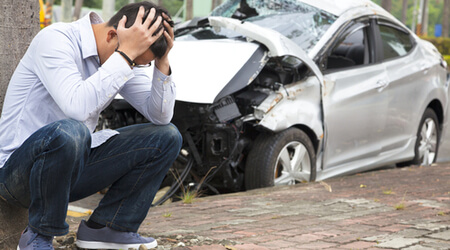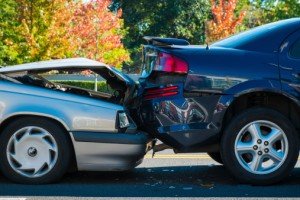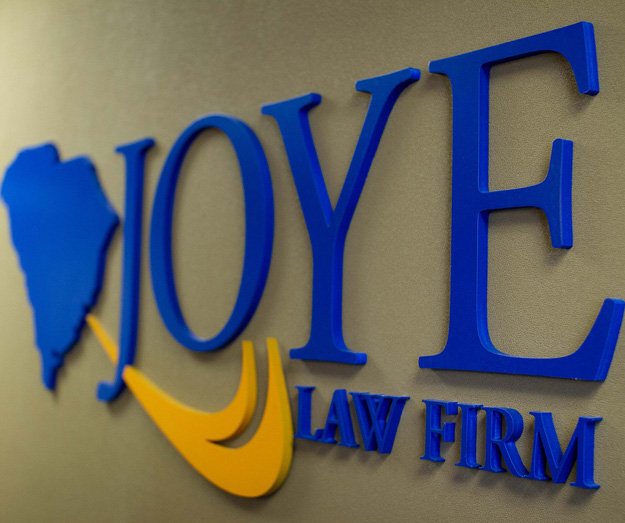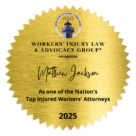
Motorcyclists are often unfairly blamed for their own crashes because there is a stereotype that they are reckless and frequently break traffic laws.
When a car, SUV, or truck collides with a motorcycle, certain evidence can prove that the driver of the passenger vehicle was at fault, but motorcyclists still face bias that can prevent them from getting the full amount of compensation they deserve, especially as they may unfairly still be considered partially at fault.
When motorcyclists crash as a result of another driver’s actions, but there is no actual collision between the two vehicles, proving the crash was not the fault of the motorcyclist becomes much, much harder.
What Is a No-Contact Motorcycle Crash?
A no-contact crash is any crash where the vehicles involved don’t actually come into contact with each other. You may also hear it called a “phantom driver” crash, and it happens more often than you might think.
A common example would be if a driver suddenly changed into a motorcyclist’s lane without signaling, and the motorcyclist had to swerve or stop suddenly to avoid them. If the motorcyclist crashes or falls off their bike because they were forced to swerve, that would be a no-contact crash.
This type of crash doesn’t only happen to people on motorcycles, but it is more common in motorcycle crashes than other types of wrecks.
No-contact crashes are often caused by drivers who are distracted, drunk, or who are driving recklessly and without any care toward the safety of anyone around them by speeding, ignoring traffic signals, and/or failing to use turn signals or check mirrors.
Thankfully, negligent drivers can still be held liable for causing motorcyclists to crash, even if there isn’t a collision.
What Happens if the Other Drives Flees the Scene?
Unfortunately, it’s far too common for the at-fault driver to leave without stopping in a no-contact crash.
Sometimes it’s not done on purpose. If the other driver caused a crash because they were distracted or drunk, it’s entirely possible they did not even notice they caused a crash. Other times, they do know they caused a crash, but they keep driving anyway because they don’t want to face the consequences.
If the other driver flees the scene, you have to treat it like a hit-and-run. When a hit-and-run is also a no-contact crash, it is called a “miss-and-run.” To make it easier to identify the at-fault driver later, try to remember as many details of the other vehicle as you can, including:
- Make
- Model
- Color
- License plate number
- Distinguishing features, such as dents or bumper stickers
- What direction the vehicle was heading when it left
Make sure to call the police and provide them these details when you report the accident. If the driver can be identified, they can be held liable for your damages, including your injuries.
If the other driver can’t be identified, you will need to pursue compensation from your own uninsured motorist coverage. If anyone stops to help after the accident, they may have seen the accident happen, so it’s incredibly important to get their contact information so they can provide testimony proving that someone else caused your crash.
Don’t Accept Blame for a No-Contact Crash
It’s common to feel stressed, upset, and frustrated after an accident, especially a no-contact accident. Victims may second-guess themselves and say “if only I had reacted faster,” or “If I had done this instead, maybe I wouldn’t have gotten hurt,” but it’s important not to waste time on what-ifs. You can’t control other people’s actions, especially when they are behaving negligently.
Everyone on the road has a duty to avoid harming the people around them. When motorcyclists swerve or stop to avoid a collision, they are doing their duty, but the driver whose reckless driving caused them to swerve wasn’t doing theirs. When this happens, those reckless drivers can and should be held responsible for the injuries they cause.
If you or someone you love has been injured in a no-contact motorcycle crash, it is important to contact a lawyer as soon as possible. Motorcyclists already face discrimination and bias from insurance companies, and they will be working hard to claim that your crash was your fault and that there was no other vehicle involved. We won’t let that stand. Contact our firm today to get started on building a claim the insurance company can’t ignore.


































